
Research from the University of Michigan reveals a connection between pollen exposure and death rates among older adults with breathing problems.

As climate change accelerates, extreme weather events and wildfires are becoming more frequent and more damaging, posing greater risks to human health, and especially in areas lacking critical public health infrastructure. University of Michigan researchers, across disciplines, are analyzing the short- and long-term health impacts of natural disasters and leading interventions directed at improving communities’ emergency preparedness. Key to this work are experts at the Michigan Center on Lifestage Environmental Exposures and Disease and the Center for Sustainable Systems, who are assessing the nexus of our changing climate and global public health.

Research from the University of Michigan reveals a connection between pollen exposure and death rates among older adults with breathing problems.

Researchers from the University of Michigan measured hormone levels in capuchin monkeys to decode how the stress response helps these monkeys weather environmental challenges.

To try to understand how harmful algal blooms might evolve in Lake Erie in a warming climate, University of Michigan scientists helped conduct a survey of cyanobacteria in a gulf of Kenya’s Lake Victoria.
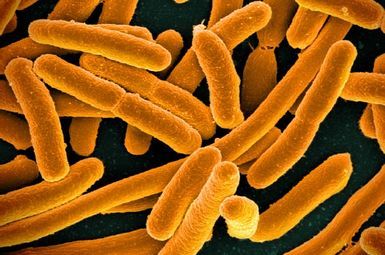
Research led by the University of Michigan shows that communities of color in Texas face pronounced risks of E. coli exposure in nearby waters after intense rain.

Morning glory plants that can resist the effects of glyphosate also resist damage from herbivorous insects, according to a University of Michigan study.
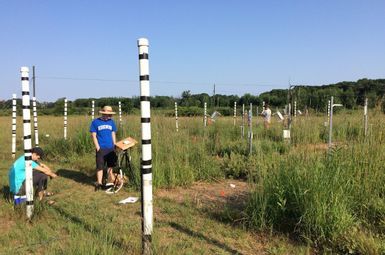
In a new long-term ecological experiment, researchers showed that elevated levels of carbon dioxide nearly tripled species losses in grasslands attributed to the long-term application of simulated nitrogen pollution.

While ticks and the maladies associated with these minute vampirish insects get a lot of media attention, lurking in the not-too-distant shadows we find several other and potentially more ominous vectors of disease—the fungal pathogens.

Nanoparticles delivered intravenously in mice can block the allergic reactions to red meat caused by the bite of the lone star tick, new research led by U-M shows. The condition, called alpha-gal syndrome, is on the rise in humans as climate change and other factors have led the ticks to expand their habitat.

“Clarity on vulnerable subgroups more susceptible to heat-related deaths will enable policymakers to design effective intervention strategies targeted to these subgroups. Downstream, this will ensure greater climate action equity.”

Great Lakes researchers at U-M have been awarded a $6.5 million, five-year federal grant to host a center for the study of links between climate change, harmful algal blooms and human health. Increased precipitation, more powerful storms and warming Great Lakes waters all encourage the proliferation of harmful algal blooms composed of cyanobacteria.
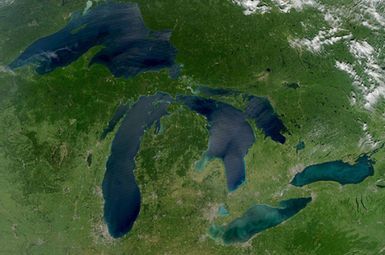
The U.S. National Science Foundation has awarded a three-year, $614,000 grant to U-M and its international partners to create a new research initiative that will address the socioeconomic vulnerabilities of climate migrants in the Lake Victoria Basin (LVB) and Great Lakes Region (GLR).

Changing how often a popular cancer therapy is delivered would reduce greenhouse gas emissions and improve environmental impact without decreasing cancer survival, according to an analysis from researchers at the U-M Health Rogel Cancer Center.

Pollen allergies affect nearly one third of the global population, and climate change is set to make it worse. Rackham student Yingxiao Zhang is developing a better way to forecast allergy season to help people better navigate its headaches.
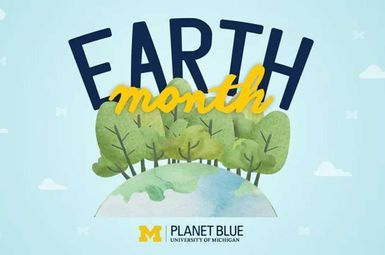
U-M is marking late March and all of April with a series of events focused on sustainability and climate action, continuing a tradition that began with the first “Teach-In on the Environment” in 1970—which grew into what is now known as Earth Day.

The Green Anesthesia Initiative, or GAIA — an homage to the personification of Earth in Greek mythology — was established in 2022 by the Department of Anesthesiology. Its initial goal, now surpassed, was to reduce emissions from inhaled anesthesia by 80% within three years from a 2021 baseline, while ensuring patient safety.
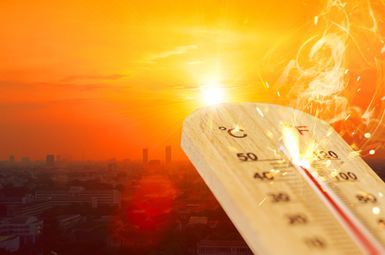
"“And the warming will continue to accelerate until we halt the burning of fossil fuels. This means continued worsening extreme heat and heat waves, but also many other worsening climate extremes driven by warmer temperatures. More severe droughts, more intense rainfall, more devastating hurricanes and bigger, more widespread wildfires."

Ann Arbor and other cities across the Midwest and Northeast have been referred to by climate specialists as “climate havens,” natural areas of refuge that are relatively safe from extreme weather events such as intense heat and tropical storms.
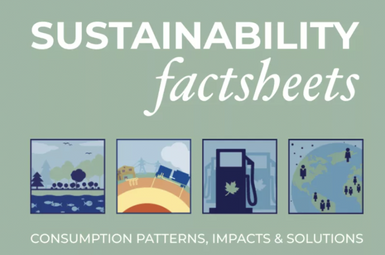
Each peer-reviewed factsheet presents data on patterns of use, life cycle impacts, and sustainable solutions. Updated annually by a current SEAS graduate student, the collection is a free resource to inform journalists, policymakers, business professionals, students, teachers and the public.
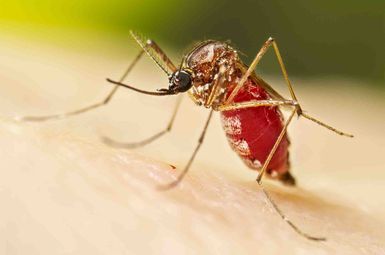
The transmission potential of Zika or dengue in Brazil may increase by 10% to 20% in the next 30 years due to warming temperatures linked to climate change, according to U-M researchers.

Scientific studies have shown that exposure to some PFAS in the environment may be linked to harmful health effects in humans and animals. Because there are thousands of PFAS chemicals found in many different consumer, commercial, and industrial products, it is challenging to study and assess the human health and environmental risks.
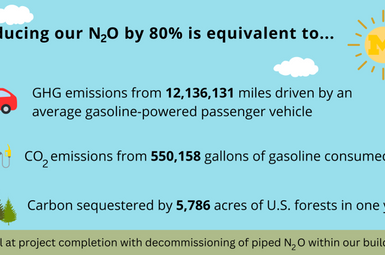
Anesthesiology is a carbon-intensive specialty, including the recurring use of inhaled agents which can lead to significant greenhouse gas emissions and global warming over an extended period. The Green Anesthesia Initiative aims to implement environmentally sound health care practices while continuing to protect public health and provide excellence in patient care.

The risk of death rises among older adults with Alzheimer’s or other dementias in the months following exposure to a hurricane, a new U-M study shows. Their increased risk could be due to disruption of normal routine, such as access to caregiving, changes in living environment, loss in access to medications, and change in daily routines, said study first author Sue Anne Bell, assistant professor at the U-M School of Nursing.

As climate change and population growth make water scarcity increasingly common, a much larger share of the global population will be forced to reckon with the costs of urban water scarcity. A new study sheds light on how households bear the monetary and nonmonetary costs when water supply is intermittent, rather than continuous—with policy implications that could help make urban water safer, more sustainable and more equitable.

“I think that we are at one of the most incredible moments in this movement — a movement that, yes, we are a big part of, but that you all will be leading for years to come, and I’m so excited."
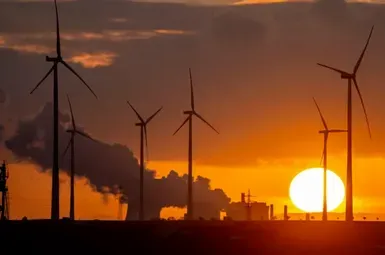
"From my vantage point at a large public university, I know firsthand how activism and energy of students, with support from faculty and other university communities, has galvanized our institution to make real commitments and progress toward carbon neutrality."
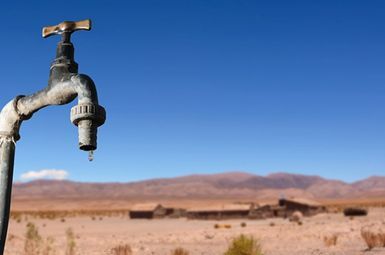
"Water levels are getting lower and lower because of two big problems. First, the long agreed-upon annual allocation of water to about 40 million users in seven states (e.g., California) and Mexico exceeds the supply of water flowing in the river. Second, and ignored by many, the water flowing in the river is also dropping relentlessly, as a warmer, drier climate reduces the amount from snow and rain that reaches the river."

Projects will pursue a range of carbon neutrality pathways, including carbon capture, renewable fuels, energy storage, aircraft electrification, solar power, chemical production, and circular economies.

People who respond less emotionally to images of damage to the environment are also less emotional and empathic in general, according to a new U-M study. Differences in political ideology can limit policy adjustments that address climate change. However, some people appear less emotionally impacted by environmental destruction—particularly those who are more ideologically conservative and less pro-environmental, the study showed.

"Our growing global warming and heat wave problem is scorching our economy in many ways, racking up a trillion-dollar-plus price tag in the U.S. alone. Impacts are often highest locally where extreme heat occurs, but global supply chains are also at increasing risk due to heat-supercharged extremes, including drought, wildfire, flooding and deadly storms."
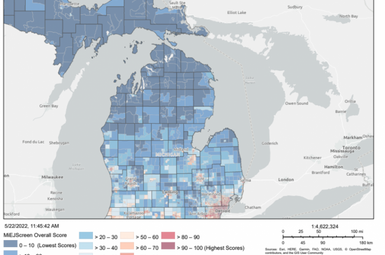
Because environmental justice screening tools will affect community members impacted by disproportionate environmental burdens, soliciting input from the environmental justice community is crucial to developing and using screening tools, according to a new study from U-M.

Three tenure track faculty positions will be hired, one each in the Ford School, the School for Environment and Sustainability (SEAS), and the School of Public Health (SPH), to examine the connections among racism and racial violence, environmental injustice and racialized health disparities to achieve better knowledge of the way policies and actions exacerbate or ameliorate unequal burdens of harm, according to the University’s Anti-Racism Hiring Initiative.

Allergy seasons are likely to become longer and grow more intense as a result of increasing temperatures caused by manmade climate change, according to new research. By the end of this century, pollen emissions could begin 40 days earlier in the spring than we saw between 1995 and 2014.

A U-M study evaluated more than 5,800 foods, ranking them by their nutritional disease burden to humans and their impact on the environment. It found that substituting 10% of daily caloric intake from beef and processed meats for a mix of fruits, vegetables, nuts, legumes and select seafood could reduce your dietary carbon footprint by one-third and allow people to gain 48 minutes of healthy minutes per day.
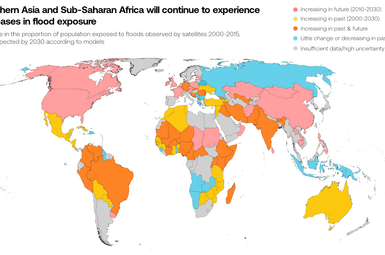
New research used direct satellite observations of floods to reveal that the proportion of the world’s population exposed to floods has grown by 24% since the turn of the century—10 times higher than scientists previously thought—due to both increased flooding and population migration.

More older adults are hospitalized in the month following hurricanes while fewer primary care doctors, surgeons and specialists are available in some of their communities in the long term, according to a pair of U-M studies. The findings are noteworthy as the population of older adults is rapidly growing alongside increasing impacts from climate change, such as extreme weather events, the U-M researchers say.

Replacing half of all animal-based foods in the U.S. diet with plant-based alternatives could reduce climate-altering greenhouse gas emissions 1.6 billion metric tons by 2030, according to a new study by researchers at U-M and Tulane University.

Members of the University of Michigan School of Public Health’s Public Health Action Support Team (PHAST) traveled to the US Virgin Islands to conduct a post-hurricane analysis of communities affected by Hurricanes Irma and Maria in September 2017.

Most of the cities in Michigan will be dealing with harsh consequences of climate change, and vulnerable groups who are disproportionately affected by it will continue to do so now and into the future, according to a new study.

Breast cancer patients who endured Hurricane Katrina in 2005 have a 15% higher mortality rate than those patients not exposed to the storm, according to a U-M researcher.
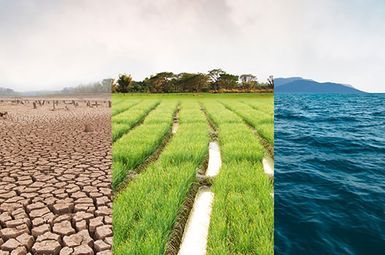
Public health practitioners are increasingly aware of the pressures climate change places on their work—from flooding, drought, and heatwaves to policy and health management to the unknown of a dynamic environment.

Most people over age 50 say they’re ready for natural disasters and emergency situations, but a new national poll shows that many haven’t taken key steps to protect their health and well-being in case of severe weather, long-term power outages or other situations.

As the world grows warmer and the region grows wetter, extreme heat and rain will cause more people to die or become ill—a costly burden in terms of lives lost and health care costs to the state of Michigan, a new report says.

A new study examining the carbon footprint of what more than 16,000 Americans eat in a day has good news for environmentally conscious consumers: diets that are more climate-friendly are also healthier. The study, conducted by researchers at U-M and Tulane University, is the first to compare the climate impact and nutritional value of U.S. diets using real-world data about what Americans say they are eating.
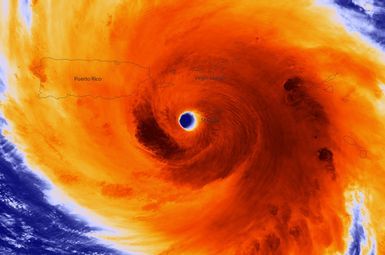
The federal response to hurricanes Harvey and Irma was faster and more generous than the help sent to Puerto Rico in preparation and in the aftermath of Hurricane Maria, according to U-M researchers.

Seawalls higher than approximately 16 feet can effectively reduce tsunami-related damage and death, according to a study that applies big-data analytics to more than 200 years of tsunami records from the Pacific coast of Japan’s Tohoku region.